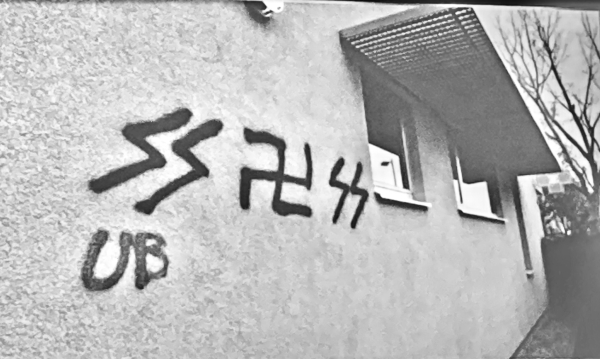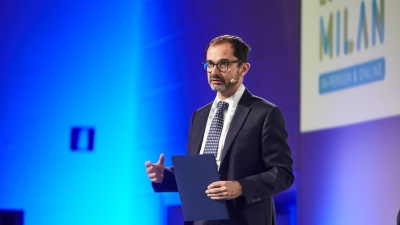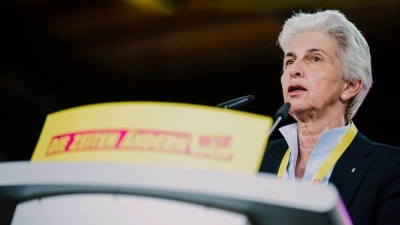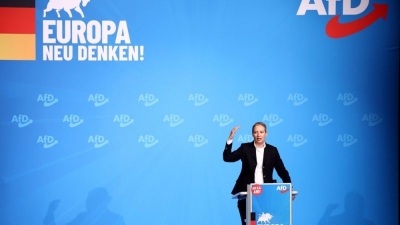Jewish conference addresses horrors of antisemitism past and present

European Jewish Association Managing Director Jorgos Papadakis opened the conference by declaring that the decision to go ahead at a time of “unfolding tragedy” in Israel showed strength and resilience, as well as support for “our brothers and sisters”. The Israeli Ambassador to Croatia, Gary Koren, said it was an opportunity to stand with his country and its right to self-defence in a war “waged upon us by the terrorist organisation Hamas … with the blessing of the Iranian regime”.
The Ambassador said Israel had “no choice but to fight Hamas, to obliterate Hamas”. His country was attacking military targets, as defined in international law. “Israel will always be criticised, always expected to stop”, he said. “This time we will finish the job”.
The choice of Zagreb for the conference brought it to a country, Croatia, which had experienced both the vicious conflict between ethnic groups that followed the collapse of Yugoslavia and some of the worst horrors of the Second World War. At the Jasenovac death camp at least 82,570 victims perished between 1941 and 1945, although the task of adding to the names of the dead still continues. They were men, women and children categorised as racial or political enemies of wartime Croatia, a puppet state of Fascist Italy and Nazi Germany.
The victims included 4,741 Serbs, 16,148 Roma, 13,041 Jews, 4,235 Croats and 1,123 Muslims. The Grand Mufti of Bosnia and Herzegovina, Mustafa CerIc, making his first visit to Jasenovac, discovered the names of four members of his own family. The chair of the European Jewish Association’s Committee on Combatting Antisemitism, Chief Rabbi Binyamin Jacobs, told the gathering at the memorial on the site of the camp that he had planned to say that what happened 80 years ago could happen again. But it had happened already, a few days earlier in Israel.
European Commission Vice-President Dubravka Šuica said Europe stands with Israel and that the attacks by Hamas were “nothing but terrorism”. She added that they had “nothing to do with the legitimate aspirations of the Palestinian people”. The chair of the Association’s Jewish Leaders’ Board, Joel Mergui, said that “those who are with us today, need to be with us tomorrow, when we defend ourselves”.
As well as responding to the appalling and developing news coming from Israel, speakers at the conference also addressed its intended theme of antisemitism in South Eastern Europe today. Tomer Aldubi, from the organisation Fighting Online Antisemitism, presented his kfindings. Unlike in Western Europe, only a small proportion of antisemitism was directed against Israel.
AdvertisementLow level in Croatia and Romania but more common in Serbia, Slovenia and especially Bulgaria, it was what he labelled ‘classical’ antisemitism, blaming Jews for everything from Communist rule to the Covid pandemic. Natan Albahari, a Serbian MP who has personally experienced antisemitism, said there was a strong correlation with other far-right activity, such as denying the genocide of Muslims at Srebrenica and painting murals celebrating war criminals.
The Bulgarian MP Alexander Simidchiev argued that most antisemites did not have an ideology, “they just hate”, though most of them were opposed to Bulgaria’s membership of the European Union. Covid and the Russian invasion of Ukraine had triggered the alienation that causes antisemitism, even though his country was overwhelmingly not antisemitic and had saved nearly all its Jews from the Holocaust.
The disproportionate effect of a few individuals, filled with hatred or perhaps just attracted to simplistic solutions, was illustrated by the visual artist Tanja Dabo. She had photographed antisemitic, racist and other far-right symbols for her project ‘Incidental Evil’. Ms Dabo had noticed how inscriptions glorifying hate speech had multiplied in her street in Zagreb and become accepted, as “people literally just pass by”.
Share this article:



